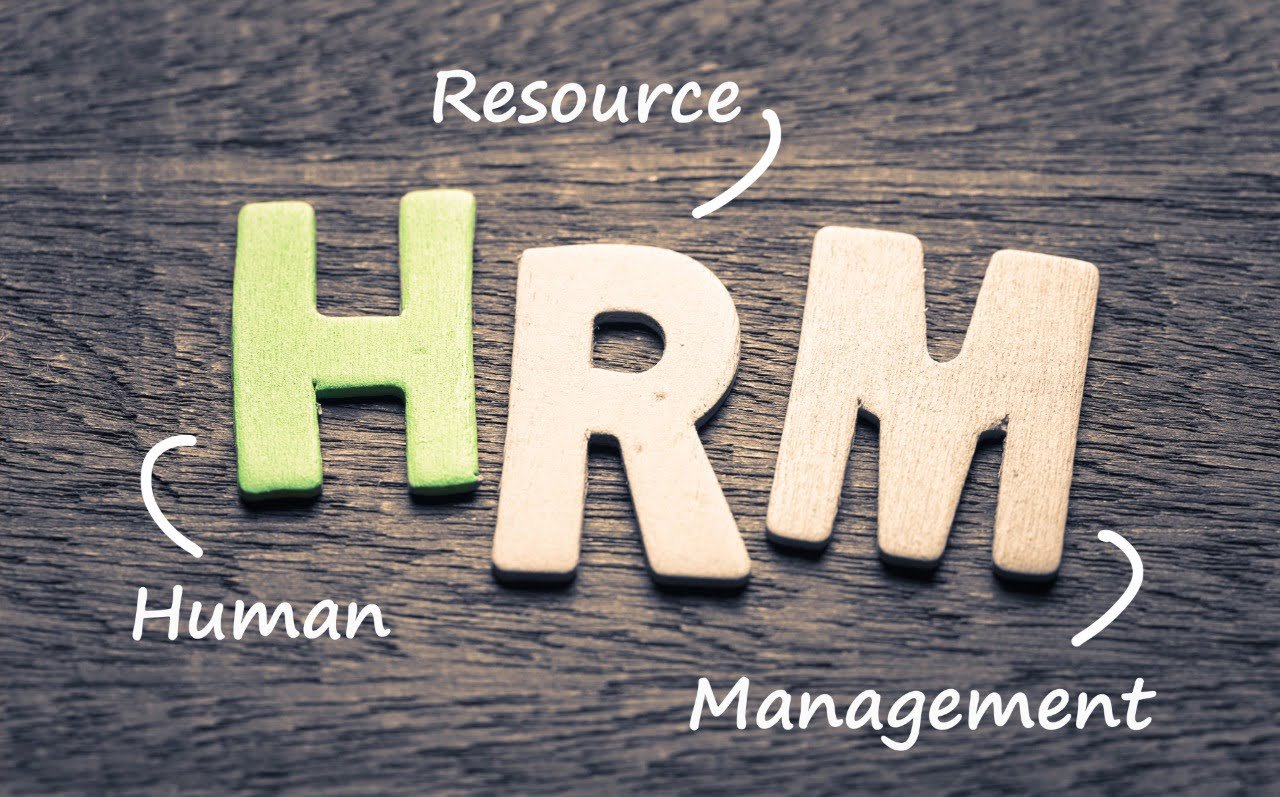The phrase “human resource management” (HRM) refers to all the formal processes developed to assist in managing stakeholders within a firm, including employees. Recruitment, pay, and labour assignment are the three core responsibilities of human resource management.
The finest technique to boost an organisation’s productivity via its personnel is what HRM should ideally look for. The HRM job is expected to remain the same, despite the business environment changing at an ever-increasing rate.
Functions of human resource management
Depending on the sector, the size of the company, and the sorts of people employed, HR duties might change. Other crucial responsibilities of human resource management include:
-
Analyses jobs: The correct individuals may be easier to employ, suitable remuneration may be easier to decide, and training programs may be easier to develop if the skills and experience required to execute a job successfully are known.
- Workforce management: Supporting regulatory compliance can be provided by developing health and safety regulations, handling employee complaints, collaborating with labour unions, etc.
- Measurement of performance: Performance evaluation is crucial since it promotes employee growth via constructive criticism and acts as a guide for pay increases, promotions, and terminations.
- Incentive schemes: Recognising accomplishments and rewarding top performers with bonuses and other benefits is a tried-and-true strategy for encouraging staff to take responsibility for company goals.
- Professional development: Increased productivity, less attrition, and a decreased demand for supervisors are all benefits of employee training, which can vary from orientation to advanced educational programs.
Human Resource Management Principles
It is currently considered an extension of any firm that focuses on strategy. The following are some of the specific values that the HR department adheres to:
1. Dedication: Job security is one issue that the HR department strives to address. Many employees must demonstrate devotion to the business and their jobs to ensure job security. The HR management steps in to set policies to ensure personnel numbers match the demands of the business and, in doing so, guarantee employees’ long-term employment with the company.
2. Expertise: Competence is one of the fundamental ideas underpinning a company’s expansion and development. It is a factor that also impacts how happy people are with their jobs and how much the business contributes to society. The talent of its employees determines a company’s success. The HRM section provides employee competency maintenance training alternatives.
Objectives of human resource management
Four main categories can be used to categorise HRM goals:
- Societal goals: Actions made in response to the ethical and social demands or challenges encountered by the business and its employees are referred to as societal goals. This covers judicial matters like equal opportunity and remuneration for similar efforts.
- Organisational objectives: Actions to ensure effectiveness are called organisational objectives. This includes offering training, employing appropriate workers for a particular job, or preserving high staff retention rates.
- Functional goals: Requirements for maintaining good HR operations throughout the whole organisation. This involves ensuring that HR’s resources are all used to their advantage.
- Personal goals: This entails maintaining employee contentment and allowing them to further their education or career.
Responsibilities of human resource management
HR professionals typically create and oversee initiatives to enhance workplace effectiveness and employer-employee relations. This complete task includes several distinct but essential responsibilities, including:
- Staffing: Several crucial measures must be taken to staff a firm or department. Before making decisions and negotiating pay, hiring managers must decide how many new hires the budget can accommodate. The next step is to find and speak with qualified people.
- Creating workplace regulations: HR professionals frequently consult with CEOs and other management, create the supporting paperwork, and alert employees if a new or modified policy is necessary. Policies may govern vacations, dress codes, disciplinary measures, and other workplace customs.
- Managing benefits and pay: Compensation must adhere to industry norms and be competitive with what other employees in related professions are earning to draw in and keep talent. A thorough evaluation of an employee’s years of employment, experience level, education, and skills is necessary to develop such a fair compensation scheme.
- Conserving talent: Talented workers are kept on by more than pay alone. HR managers should proactively resolve problems with work environments, corporate cultures, and relationships between subordinates and workers.
- Educating personnel: Employees tend to be more productive and content with their jobs when they acquire new skills. Team-building exercises, ethical and policy education, and on-the-job training and skills, such as operating a machine or computer program, are some of the training programs commonly performed by HR departments.
- Observing regulations: Whether they deal with discrimination, health care, or salaries and hours, workplace laws are constantly changing. To support compliance and inform the rest of the company, HR professionals need to remain up to date on these developments.
- Preserving safety: Safeguarding the data of the employees is part of workplace safety, along with protecting their physical health. HR must put security measures in place and make sure that all federal, state, and union criteria are maintained to reduce workers’ compensation claims and data breaches.
How does HRM function?
Devoted HR professionals manage human resources by doing routine HR-related responsibilities. The majority of organisations dedicate an entire department to human resources.
The size, organisation, and function of each role within an HR department vary significantly between various firms. Few HR generalists, each of whom performs a wide range of HR duties, are common in smaller firms. More specialised roles may exist in larger companies, where certain employees are in charge of hiring, processing immigration and visas, managing personnel, offering benefits, paying salaries, and other tasks. While specific HR careers are distinct and specialised, job responsibilities can overlap.
HR’s Professional Qualifications and Skills
Certain traits and abilities are required for a profession to excel in its field. Similarly, a human resources professional should possess several important HR traits and skills. The following HR traits are likely the most important for an HR professional to excel at work.
1: Planning is essential: Being organised is the most critical need for being a successful HR professional. HR oversees several tasks besides employing individuals, including employee training, event management, etc. An HR professional must therefore maintain a constant organisation to handle the job effectively.
2: Interaction: The HR specialists’ communication must be effective! All day long, HR professionals must engage in several forms of communication. They must pay attention to others, conduct interviews with prospective hires, and mentor new hires as they transition into their positions. Therefore, a person who needs more practical communication skills is a good fit for the position of HR.
3: Set a good example: HR professionals are leaders, and the finest leaders set a good example for others to follow. To the best of their abilities, HR professionals must meet all workforce needs.
4. Solve issues creatively: There may be instances when the HR department is overworked, and on top of that, they are dealing with issues with the company or its workers. They must maintain their composure and use realistic and sensible thinking to solve the situation best rather than becoming irritated or terrified.
5. The capacity for multitasking: As was previously said, HR has other duties as well. They could be trying to remedy a problem while authorising a maternity leave and training the new hire. Therefore, the HR professional must be excellent at multitasking when overloaded with work.
6: Self-discipline and time management: Everyone in the business has limited time to perform everyday chores, but HR professionals frequently have additional urgent work to deliver on top of their regular duties. In this situation, they must refrain from doing their job the following day since doing so will cause a backlog of work. Only someone with good time management abilities and self-discipline can overcome this.
7: Take Risks: HR professionals can find themselves challenging, particularly when employing new employees or settling a problem at work. They must be confident to act bravely, take a chance, and trust their instincts during these trying times. A human resources practitioner should have jumping faith and the ability to convert failure into an opportunity.
8: Knowledge and expertise in HR: A good HR practitioner should constantly be willing to learn new skills and should keep up with industry developments. With a master’s degree, they must also be knowledgeable about the work ethics, commitment, and obstacles in every business in their line of work.
9: Handling the data: The recruiting process and daily operations need a lot of data management from HR experts, including resumes, business HR regulations, daily employee statistics, and many other types of information. Although they could utilise recruitment technologies to make their jobs easier, they still need to be able to comprehend and manage all the data.
10: Effective conflict resolution abilities: Conflicts at work can be mild or unpleasant, but they must always be handled responsibly and sensitively. The correct, impartial solution must be found when both sides of the disagreement have had a chance to be heard. The HR specialist is in charge of this obligation. As a result, they must be adept at handling conflicts and ensuring that business operations function smoothly.
How to Choose the Right HR Software for Your Organization
You may pick the ideal solution tailored to address specific difficulties in workforce management by taking a step-by-step approach in line with your firm’s demands.
Step 1: Software Type – Over the past few years, organisations have adopted cloud software at a phenomenal rate. On-premise systems are frequently preferable to them.
Step 2: Size of the Company – Depending on your business’s needs and staff strength, you may select from various software suite sizes. There are small, medium, and large packages of the HRMS software available.
Step 3: A Centralized System – You must ensure your chosen solution works appropriately with other hardware and software. Working on many systems simultaneously results in a disconnected, unproductive environment where communication and information transfer fail.
Step 4: Experience of the ERP Provider – Examining customer reviews and case studies is one technique to determine whether the program is worthwhile before investing. You can ask the ERP provider to provide some of their ERP case studies and customer testimonials, often available on the company’s website. Some might even be delighted to set up a meeting between you and one of their clients.
Step 5: Latest Technologies – Users should seek software integrated with the most recent technology to build a future-proof human resource management system.
Step 6: Instruction and Assistance – Speak with the service provider to see how they assist their clients with change management, training, and software implementation. Make sure their help is ongoing and comprehensive by asking questions.
Conclusion:
Human resource management supervises redundancies for businesses looking to scale back, in addition to managing the hiring of new staff. The HR department is also responsible for orientation programs that inform new hires about the organisation’s aims, policies, and procedures. Overall, human resource management makes sure that employees work efficiently inside a company.
Frequently Asked Questions:
Human resource management aims to create jobs and work with the people who hold those jobs or employees. One has to be identified to carry out a job in an organisation. Notification with the job description (duties and responsibilities) and specifications (academic and physical requirements) should be sent out to find the best candidate for the position. The appropriate selection techniques for choosing the proper individual should be used to assess the invited applicants’ accuracy.
HR is effective when a company’s culture prioritises diversity, inclusiveness, equity, employee welfare, employee engagement, and career growth when workers feel like they belong and are dedicated to assisting the organisation in achieving its objectives.
In a separate SHRM study, HR professionals who participated stated they planned to hunt for a new job for various reasons, with more financial compensation coming in first and better career growth prospects coming in second.
An MBA in HR or human resource management can be earned after completing a two-year program. It is concentrated on selecting, supervising, and providing leadership and guidance to employees who work for a firm. An MBA in HR program provides instruction and knowledge in managing the organisation’s staff.




